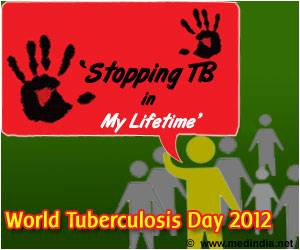Doctors had high hopes for the formula but the most promising vaccine to replace the world's 91-year-old TB jab does not protect against the disease, large-scale trials showed.

MVA85A was found to be safe and had no side effects, but "did not provide statistically significant protection" against the TB microbe, the researchers announced.
The trial was a so-called Phase IIb, comprising the intermediate step between the second and final phases of the long process by which drugs are vetted for safety and efficacy.
It is the first TB vaccine candidate to reach this stage since BCG, which was licensed for humans in 1921.
The trial, launched in 2009, saw the drug tested on 2,800 infants in South Africa's Western Cape province who did not have TB or the AIDS virus.
All of the children were given BCG at birth. Half of them also received a single dose of MVA85A at four to six months of age, and the others were given a harmless placebo.
Advertisement
The difference amounts to vaccine efficacy of 17.3 percent.
Advertisement
"The results from this study should let us know far more about the type and level of immune response required, and that will boost future efforts to develop an effective TB vaccine," she said in a press release.
"The difficulty of this task is one reason why there has not been a new TB vaccine since BCG was developed more than 90 years ago, but one is still urgently needed and I?m not about to give up now."
TB is an infection caused by Mycobacterium tuberculosis and is one of the world's deadliest diseases.
It is spread from person to person through the air and usually affects the lungs, but it can also affect other parts of the body such as the brain and kidneys.
Nearly nine million people around the world had TB in 2011, including more than 400,000 with a multidrug resistant form of the disease, according to the World Health Organisation (WHO).
More than a dozen TB vaccines are under trial around the world, a figure that has risen sharply over the past decade.
In a commentary also published by The Lancet, TB experts Christopher Dye at the WHO and Paul Fine at the London School of Hygiene and Tropical Medicine said the verdict for MVA85A was not "terminal".
It could show higher protection in other TB settings, they said.
MVA85A is also being tested in a Phase IIb study among people with HIV in Senegal and South Africa, a Phase IIa study in infants born to HIV-positive mothers in South Africa, and in Phase I studies in Britain.
Also unexplored is whether MVA85, working as booster to the BCG, can protect adolescents and adults against pulmonary TB even though it cannot do this for infants, the pair said.
Source-AFP















